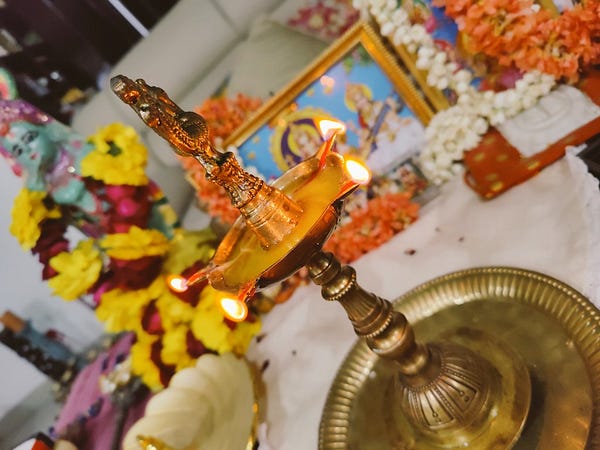Why Bombay wins hearts
Amrita Mahale’s stunning novel ‘Milk Teeth’ depicts life in Bombay through a nostalgic lens.
Dear Reader,
It’s been a whirlwind start in 2023. [READ: Happy 2023, from Sydney]
I want to show you some snippets of my recent trip to Mumbai. Wait, ‘it’s Bombay’ as most folks who live there are quick to remind me.


The most striking facet about Bombay is how the city lets you be.
Walking to my studio apartment past 12 am after an office party is safe in Bombay.
To do the same in Delhi or Noida would land me in deep, deep danger.
I respect the autowallahs who return the ‘3’ rupee change when I pay them Rs 25 instead of Rs 23, which is their ‘metre charge’ for the destination they take me to.
For about Rs. 400, I can enjoy a variety of dishes in Bombay’s street food outlets. In Delhi or Noida, stepping out to a ‘decent’ and ‘hygienic’ restaurant or even a coffeeshop would cost me nothing less than a thousand rupees excluding taxes.
The value for money, from my middle class Indian perspective, is an experience of Indian life and it varies from one city to another due to a variety of reasons.

On the flight from Mumbai to Delhi, I began reading Amrita Mahale’s ‘Milk Teeth’, which depicts life in Bombay through a nostalgic lens.
Childhood turns into a compex web of adulthood, where ‘marriage’ and ‘status’ define our identity for not just ourselves, but for parents and relatives and the society itself.
The tug of an identity crisis, when a couple belonging to different religions, is depicted with a realitic lens. Both sides are shown with their historical and subjective biases. We can relate to it as the dilemma continues to play out in contemporary India.
Every character springs to life. Relatable situations of an ordinary middle class upbringing are well-articulated. The insecurities of each character begin to grow on you, as do the hypocrisy of conflict-laden discussions about how to get the best deal from an unscruplous builder.
When I sat down to read the first chapter, I felt as though I could see everything happening in front of me.
Reading ‘Milk Teeth’ transported me to a bygone era.
Here are a few snippets from ‘Milk Teeth’ that caught my imagination:
‘There was a six-year wait for a car, a ten-year wait for a scooter, even longer for a telephone. If you could pull favours to cut the wait, you would do it.’
‘There was plenty of anger on offer in Mumbai and it was easy to look away. But every once in a while, some one with imagination crafted their fury like origami into something delightful.’
"‘When you got into a rickshaw, you inspected the markets of faith; a red-and-gold cloth or a green-and-gold sticker. You also learned to read between the lines of their absence (wait, perhaps, you always did). You begin to hear that when one was looking to rent a house, one’s surname determined one’ s pincode (wait, perhaps, it always did.)’
Bombay has a rush-filled, never-sleeps city vibe to it.
Most old buildings hold the brunt of history and a hint of mystery, a combination that never ceases to fascinate. The autowallahs and taxi drivers love to take you around to see SRK’s residence and I had to insist that I don’t want to. Everywhere, strangers are ready to help you with suggestions. They are mostly friendly and helpful. Feels good!
The city urges you to experience the unknown.
‘Milk Teeth’ captures this:
As evening fell, sky and earth were thrown into frenzy. Sheets of birds billowed overhead from treetops to join them. Traffic spilled from the main roads to the narrow lanes where eternally frustrated drivers had to now contend with hawkers and shoppers. there were puddles of murky rain water everywhere and unwary pedestrians were splashed. People cursed a lot. The climbing moon dawdled above the roofs of buildings.’
‘Are you ready for Bombay?’ feels like a dare, an exciting challenge to pursue.
Flavours from street food vendors are as tantalising as the ones you savour in quaint restaurants in Bombay.




Few happy moments in February 2023








